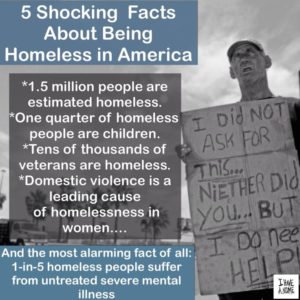
Hungry homeless youth murdering tourists in Waikiki?
It’s very much a tourism issue, and tourism in Hawaii is everyone’s business. Homeless and abused children in Hawaii find Hawaii visitors to be an easy target.
Highway signs on Hawaii’s surfing hotspot outside Haleiwa, known as the North Shore of Oahu warn tourists to protect their belongings. Homeless youth in Waikiki are turning more and more aggressive and violent at night. Desperation may have contributed to four deadly attacks on tourists and stationed military this year so far. It is happening in the heart of Waikiki where ten-thousands of tourists are roaming around trying to have a good time vacationing – not worrying about getting mugged.
Being homeless in a tourism resort city in Hawaii has very little Aloha. A large number of homeless youth is among the most vulnerable. Pushed away from Oahu’s streets, river beds and from underneath freeway bridges, homeless children are escaping to Waikiki. Waikiki is Oahu’s tourism center and is expensive. There is no money, there are not enough volunteer programs or shelters. Foster parents are not getting paid enough and there aren’t enough anyway.
Robberies, murders, prostitution are among the money earning option children on the streets in Waikiki have.
Recently the LGBT community in Hawaii raised money for gay, lesbian and transgender youth on Oahu’s streets. Churches and nonprofit organizations are trying to do their part, but are overwhelmed. This is not a situation a number of volunteers could be asked to handle. It takes money, professionals and State workers with solid funding behind them to give these abused children a chance and a direction.
Yesterday Honolulu police, the US Armed Services and politicians worked hard to declare locations off-limits, to suggest more police in uniform in Waikiki. Police in uniform is good to show tourists a destination is safe, but it’s not a solution.
Perhaps it’s time for those leaders to understand why Waikiki is turning violent. A State has the responsibility to take care of their youth. It’s not about arresting people, it’s about giving young people a reason not to turn to crime or prostitution and see a clear and a realistic path for a better future.
There should not be homeless youth anywhere in the United States. Any government has the obligation to protect their children. All of this needs money – but not really a lot of money compared to the benefits.
Ironically there is plenty of money in Waikiki. Tourism reports one record after another. Unfortunately, most major tourism companies don’t keep their money in Hawaii. Workers in the travel and tourism industry often do a great job earning minimum wage. Hardly anyone can afford their own apartment and struggle from paycheck to paycheck.
The State of Hawaii is not enforcing all taxes to be collected from major hotels. eTN had reported about tax evasion at Hawaii operating hotels and resorts for some time.
Hawaii with millions of tourists and record spending should be one of the wealthiest States in the Nation. Roads should be in top shape, healthcare including mental care should be leading – but the opposite is the case. Those mental care patients that can afford it are leaving the State of Hawaii to get help elsewhere – but homeless citizens don’t have an option.
Children must be safe, they must not be abused. This is common sense in any civilized country.
Youth living in the United States should have access to education and jobs, and they shouldn’t have a reason to turn violent to make ends needs.
The State needs to take charge. If the State is unable to do the job, the Federal Government has an obligation to protect children. Funding needs to be provided. This is way more important compared to billions currently spend on a railroad system on Oahu.
Arresting kids and throwing them in prison is not resolving the issue, but delaying it. The issue will come back much worse after those kids get their “education” in prison.
Tourists want to travel to a safe destination. They want to relax and have a good time without worrying to get mugged or robbed. Tourism is a fragile industry. One day it can be booming, the next day it can be desperate.
It’s surprising to hear Jack Richards, CEO and president of Pleasant Holidays, Hawaii’s largest travel seller that he didn’t hear about this problem yet.
eTN reached out to the Hawaii Tourism Authority, the State agency responsible for promoting tourism. They had no interest in responding.
eTN also reached out to major hotel companies including Starwood and Marriott, Hilton and Hyatt – there was no interest in responding.
eTN called Hawaii State Senator Glenn Wakai, Tourism Chair – there was no response.
eTN called Richard Onishi, Head of the House committee on tourism – there was no response.
eTN reached out to the Department of Business and Economic Development- no response.
eTN Publisher reached out to elected officials – only one called back but had “to go” after eTN had asked a question.
eTN reached out to Governor David Ige – also no response.’

In the meantime even a little $1 million private-public contribution earmarked this year for homelessness in tourist areas was not released, because Hawaii Governor Ige delayed his signature due to bureaucratic questions.
Alexandra Roth, Director of Communications & Special Projects, Hawai‘i Lodging & Tourism Association wants charities to handle the problem. They want their members to donate to help homeless youth do not turn to violence on tourists.
Hotel stakeholders should understand this issue is not getting resolved by donating money and have fancy parades. eTN receives many press releases from hotels saying they contribute to charities and they hope of positive PR coverage showing corporate responsibility.
This issue needs to be addressed heads on and tourism stakeholders not only have a responsibility and moral obligation to help. It’s in their own interest. For the hotel community contributing 2 million over the last 3 years is not a proud achievement, it’s embarrassing for those to say that make the most for themselves in this multi-billion dollar industry. The return on investment money from the hospitality or aviation industry to spend on addressing homeless issues will pay off many times over time.
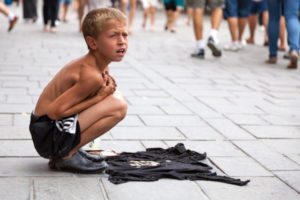
Hawaii needs to end child abuse through tourism, otherwise, this will cost the industry and the economy way more than spending sufficient money to effectively get on top of this disturbing problem.
The Hawaii Lodging and Tourism Association issued this response to eTurboNews.
“As an association with a mission of advocacy, education, and philanthropy, the Hawaii Lodging & Tourism Association has led the way for the hospitality industry in contributing over $2 million during the past 3 years to homeless service agencies and other organizations that are working tirelessly to house those who are unsheltered and get them the services they need. Part of these philanthropic efforts are accomplished through the Visitor Industry Charity Walk we hold each year, the largest single day fundraiser in the state that supports over 350 charities statewide. Our financial support, in part, goes statewide to those groups servicing the homeless, at-risk youth, and street youth. In addition, we have successfully advocated for and helped pass a bill at the state legislature to appropriate matching funds of up to $1 million to address homelessness in tourism-impacted areas.
Over and above our philanthropic efforts, we are dialoguing with our membership, the Waikiki Improvement Association, Hawaii Hotel Visitor Industry Security Association (HHVISA), Visitor Aloha Society of Hawaii (VASH) and other stakeholders and government agencies and officials on what is the best way to assist HPD and other key stakeholders in dealing proactively with some of the crime-related incidents of late that have occurred. We recognize the importance of ensuring that Hawaii needs to be perceived and seen as a safe and secure place for our residents and visitors who frequent our islands.”
In the meantime mentally challenged homeless having no place to go are roaming Kalakaua Avenue in Waikiki. Children without a home are hiding in dark alleys in Waikiki and they are hungry and desperate. Some of them may very well be in attack mode.
Is this the Waikiki holiday spot a visitor would like to see?
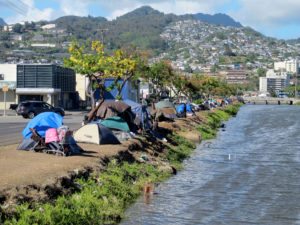
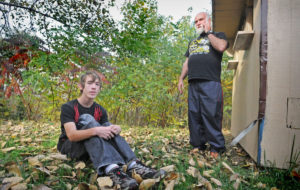
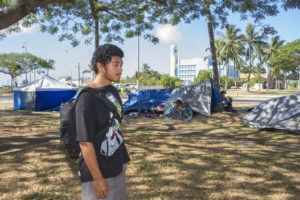
Currently reading:
54
